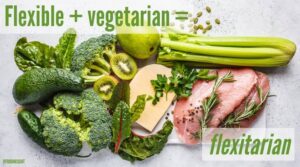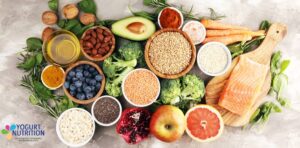“When good intentions meet biological reality, wisdom demands a new path — one that protects our bodies, honors our families, and preserves the life we are meant to live.”
“Health is not a belief system — it is a foundation. Rethinking diet choices can save lives, dreams, and generations.” Headlinenews.news.
The Hidden Risks of Total Veganism: Why Balance Matters for Your Health and Family
By HeadlineNews.News – April 28, 2025
Veganism is often praised as a symbol of compassion, discipline, and global responsibility. Yet beneath the inspiring ideals lies an uncomfortable truth: without proper resources, strict veganism can seriously damage health — and synthetic supplements cannot fully replace real, nutrient-dense foods [1][2].
Leading medical experts are increasingly warning that prolonged, poorly managed vegan diets can lead to dangerous, often irreversible health consequences [3][4].
And the reality is simple: denial will not protect health — only realism, balance, and adaptation will.

Why People Choose Veganism
Veganism is usually motivated by:
Health aspirations (preventing chronic diseases)
Ethical concerns (avoiding animal cruelty)
Environmental reasons (reducing carbon footprint)
Religious beliefs (spiritual or cultural practices)
While these are noble intentions, the biological human body requires certain nutrients that plant foods either lack or provide in inferior, harder-to-absorb forms [1].

Real Medical Warnings: What Top Experts Say
“Vitamin B12 deficiency is a very serious matter and can lead to irreversible brain and nerve damage if not corrected.”
— Dr. Reed Mangels, Ph.D., RD (The Vegetarian Journal)
“Supplements are not magic bullets. They cannot replicate the thousands of beneficial compounds found naturally in real food.”
— Harvard Medical School Health Publishing [2]
“Long-term vegans, especially those who avoid supplements, are at risk of serious complications like anemia, depression, cognitive dysfunction, and bone fractures.”
— Dr. Stephen Devries, MD (American Journal of Lifestyle Medicine) [6]
“You simply cannot obtain enough Vitamin B12, DHA (Omega-3), heme-iron, and some forms of zinc from plants alone to meet the body’s long-term needs without supplementation or careful addition of animal products.”
— Dr. Georgia Ede, MD (Psychology Today) [5]





The Silent Dangers of Poorly Planned Veganism
Even with synthetic supplements:
Bioavailability is lower compared to nutrients from natural foods [2].
Phytonutrients, enzymes, and cofactors present in real foods are missing [2].
Blood test results can look normal while tissue damage progresses silently [5].
Nature’s design cannot be fully mimicked by laboratory supplements [2].
Medium and Long-Term Health Damage from Unbalanced Veganism

Veganism: A Lifestyle That Demands High Resources
Healthy veganism demands:
Expensive specialty foods
Daily supplementation
Rigorous planning and monitoring
High financial commitment
Without these, nutritional collapse is only a matter of time [3][4].
Flexitarianism: A Middle Way for Real Health
Flexitarianism — mainly plant-based with occasional healthy animal foods — offers:
Balanced nutrient intake
Health preservation
Lower hospital visits
Practical affordability [7][9]
Mild reintroduction of eggs, fish, dairy, and occasional meat restores vitality without abandoning core ethical goals [7].
Religion, Reality, and Personal Responsibility
No faith requires chronic illness.
Choosing to adapt diet intelligently honors the divine gift of health and life.

Infographic: Vegan vs Flexitarian Health Outcomes
Bone Fracture Risk:
Vegans: 43% higher fracture risk [8]
Flexitarians: Lower fracture risk
Anemia Risk:
Vegans: 2x higher anemia rates [8]
Flexitarians: Lower anemia rates
Hospital Visits:
Vegans: Higher hospital visitation rates [9]
Flexitarians: Lowest hospital visitation rates [9]
Vitamin & Mineral Levels:
Vegans: Often deficient in B12, Iron, DHA [7]
Flexitarians: Improved B12, Iron, DHA nutrient levels [7]
Mental Health Stability:
Vegans: Higher risk of depression, brain fog [5]
Flexitarians: Improved cognitive and emotional health [7][9]

Summary:
Flexitarians consistently show better health outcomes, fewer hospital visits, and stronger nutrient profiles compared to strict vegans.
Studies: EPIC-Oxford Cohort [8], Adventist Health Study-2 [9], and Frontiers in Nutrition [7].
Sources:
[5] Dr. Georgia Ede, Psychology Today
[7] Frontiers in Nutrition (2021)
[8] Tong et al., EPIC-Oxford Study (2020)
[9] Adventist Health Study-2

Final Conclusion
Real-world evidence and multiple scientific studies confirm a crucial fact:
Vegans who struggled with recurring, inexplicable health issues — ranging from chronic fatigue to bone fractures — experienced significant improvements in health, energy, and resilience after transitioning to a balanced flexitarian diet [7][9].
Flexitarians consistently show lower hospital visitation rates, stronger metabolic health, and fewer nutrient deficiencies compared to strict vegans.
The body does not respond to ideology — it responds to reality.
True strength lies in adapting when health demands it.
Choosing balance is not a betrayal of ideals — it is the ultimate act of wisdom, love, and common sense.

References
1. Harvard T.H. Chan School of Public Health. The Vegan Diet — Pros and Cons. Available at: https://www.hsph.harvard.edu/nutritionsource/healthy-eating-plate/vegan-diet/
2. Harvard Medical School Health Publishing. Supplements vs. Real Food. Available at: https://www.health.harvard.edu/staying-healthy/should-you-get-your-nutrients-from-food-or-supplements
3. British Dietetic Association (BDA). Plant-Based Diets and Health Risks. Available at: https://www.bda.uk.com/resource/plant-based-diet.html
4. Mayo Clinic. Nutrient Deficiencies in Vegan Diets. Available at: https://www.mayoclinic.org/healthy-lifestyle/nutrition-and-healthy-eating/expert-answers/vegan-diet/faq-20058038
5. Ede, G. MD. The Vegan Brain: The impact of plant-based diets on mental health. Psychology Today. Available at: https://www.psychologytoday.com/us/blog/diagnosis-diet/201902/the-vegan-brain
6. Devries, S. MD. The Importance of Dietary Fatty Acids and Nutrients for Cardiovascular and Cognitive Health. American Journal of Lifestyle Medicine. Available at: https://journals.sagepub.com/home/ajl
7. Frontiers in Nutrition (2021). Impact of Dietary Transition on Vegan Health Outcomes. Available at: https://www.frontiersin.org/journals/nutrition
8. Tong, T.Y.N., Appleby, P.N., Armstrong, M.E.G., Key, T.J. (2020). Risk of Bone Fracture in Vegetarians, Vegans and Meat Eaters: Results from the EPIC-Oxford Cohort. BMC Medicine. Available at: https://bmcmedicine.biomedcentral.com/articles/10.1186/s12916-020-01815-3
9. Orlich, M.J., Singh, P.N. Dietary Patterns and Health Outcomes in Adventist Health Study-2. Available at: https://www.ncbi.nlm.nih.gov/pmc/articles/PMC4191896/
Headlinenews.news Special Report




